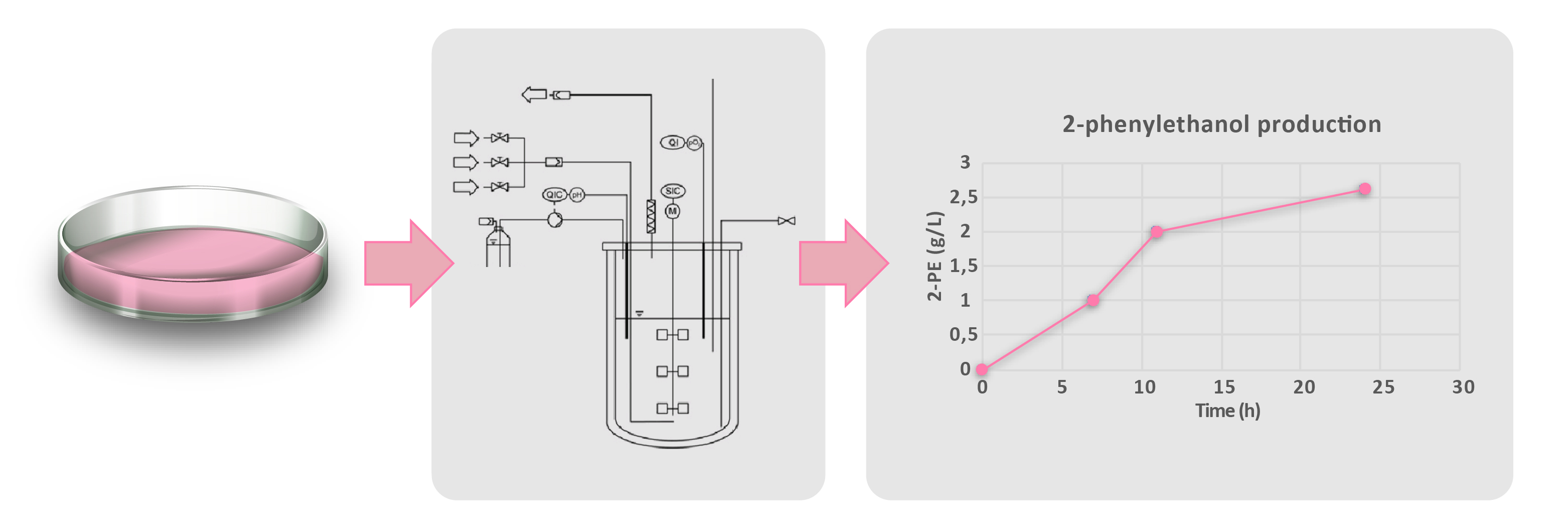
The present invention refers to a process that allows obtaining 2-phenylethanol (2-PE) from an environmental bacterium by using a high-yield, simple, natural and eco-friendly method without the need of oils or genetically modified organisms (GMO). 2-PE is the organic compound responsible for the rose odor. This technology results in high yields of 2-PE that can be used in cosmetic, pharmaceutical, and food sectors as organoleptic enhancer, antibacterial and antifungal agents. Moreover, 2-PE is also a valuable alcohol for the next generation biofuel and is used as a raw material for its derivatives in pharmaceutical and fine chemical industries. For most purposes, the 2-PE from natural sources is preferred to the ones synthesized that present potential toxicity.
Nowadays, there is a great demand for 2-PE derived from natural sources. In fact, the quality of 2-PE produced chemically is compromised, due to the residual toxic reagents used for synthesis and purification processes. Besides, the isolation from natural sources (for example, rose oil) is too expensive and presents low yields. The present invention overcomes the difficulties mentioned above allowing to produce high amounts of natural 2-PE using an environmental bacterial strain and a simple and low-cost culture medium.
This technology is a new and natural process for 2-PE production. Also, it allows to obtain GMO-free products. Comparing with other processes, it is possible to achieve higher production yields and fewer contaminants. From this bacterium culture, the 2-PE is easily recovered and separated from other volatile compounds produced along.
This invention addresses the aroma chemicals industries with potential markets as personal care products, fine fragrances, cosmetics, household care products, food & beverages, etc., as well as the biofuels industry, pharmaceuticals, and fine chemical industries.
A proteção dos direitos de propriedade industrial é cofinanciada por:






